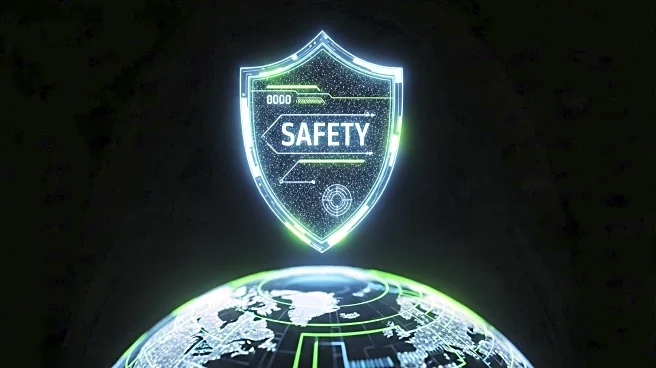What's Happening?
Meta has announced the global expansion of its Teen Accounts on Facebook and Messenger, which were initially available only in the U.S., U.K., Australia, and Canada. These accounts include built-in protections and parental controls designed to safeguard younger users. The initiative follows scrutiny from U.S. lawmakers regarding the safety of teens on social networks. The Teen Accounts automatically limit exposure to inappropriate content and restrict unwanted contact. Teens under 16 require parental permission to alter settings, and messaging is limited to known contacts. Additionally, teens receive reminders to log off after an hour of usage and are enrolled in 'Quiet mode' overnight. Despite these measures, a study led by a Meta whistleblower suggests that teens may still encounter harmful content, although Meta disputes these findings.
Why It's Important?
The expansion of Teen Accounts is significant as it addresses ongoing concerns about teen safety on social media platforms. With increasing scrutiny from lawmakers and public health officials, Meta's initiative aims to mitigate risks associated with online harm, including exposure to inappropriate content. This move could influence public policy and industry standards regarding digital safety for minors. Schools in the U.S. can now participate in Meta's School Partnership Program, enhancing the ability to report safety concerns directly to Instagram. This development may lead to improved safety protocols and foster trust among parents and educators, potentially impacting Meta's reputation and user base.
What's Next?
Meta's expansion of Teen Accounts and the School Partnership Program may prompt other social media companies to adopt similar safety measures. As concerns about teen mental health and social media usage continue to rise, further regulatory scrutiny and potential legislative actions could be anticipated. Meta's ongoing efforts to enhance safety features may lead to additional updates and collaborations with educational institutions. Stakeholders, including parents, educators, and policymakers, will likely monitor the effectiveness of these initiatives and advocate for further improvements.
Beyond the Headlines
The ethical implications of social media companies' responsibility to protect young users are profound. Meta's actions highlight the balance between user engagement and safety, raising questions about the effectiveness of self-regulation versus external oversight. The long-term impact on teen mental health and digital literacy may shape future educational curricula and parental guidance strategies. As digital platforms evolve, the cultural shift towards prioritizing online safety could redefine industry practices and user expectations.








